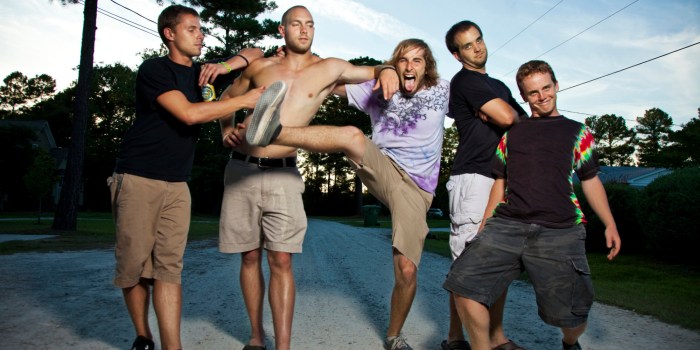What is the hardest black fraternity to pledge? This question has sparked both intrigue and debate within the realm of Black Greek Life. The pledging process, a cornerstone of black fraternities, is often shrouded in secrecy and shrouded in legends of extreme challenges.
This article delves into the complexities of pledging, exploring the historical, cultural, and psychological factors that contribute to its perceived difficulty.
Factors such as physical endurance, mental fortitude, and emotional resilience are put to the test during pledging. Black fraternities have a rich history and tradition, and the pledging process is often seen as a rite of passage that strengthens the bonds of brotherhood and prepares individuals for leadership roles in their communities.
What is the Hardest Black Fraternity to Pledge?

Pledging, the process of joining a black fraternity, is a physically, emotionally, and mentally demanding experience. The difficulty of pledging varies among different fraternities, and there is no consensus on which one is the “hardest” to pledge.
Defining Pledging Difficulty
The perceived difficulty of pledging is influenced by several factors, including:
- Physical challenges:Pledges may be subjected to strenuous physical activities, such as running, calisthenics, and sleep deprivation.
- Emotional challenges:Pledges may face emotional stress from hazing, social isolation, and sleep deprivation.
- Mental challenges:Pledges may be required to memorize extensive information about the fraternity’s history, rituals, and traditions.
The criteria used to determine the “hardest” black fraternity to pledge may include:
- The length and intensity of the pledging process
- The number and severity of hazing practices
- The psychological and emotional impact on pledges
Historical and Cultural Influences
The origins of pledging rituals in black fraternities can be traced back to the late 19th century. These rituals were designed to test the strength and commitment of potential members, and they have evolved over time to reflect the cultural and societal influences of the time.
The role of tradition and legacy in determining pledging difficulty is significant. Some fraternities have a long history of hazing and other harsh pledging practices, while others have adopted more moderate approaches.
Pledging Practices and Hazing, What is the hardest black fraternity to pledge
The pledging process in black fraternities varies widely, but some common practices include:
- Sleep deprivation:Pledges may be forced to stay awake for extended periods of time.
- Physical exercise:Pledges may be subjected to strenuous physical activities, such as running, calisthenics, and push-ups.
- Hazing:Pledges may be subjected to various forms of hazing, including physical abuse, humiliation, and sleep deprivation.
Hazing is a controversial practice that has been criticized for its potential to cause physical and emotional harm. However, some fraternities argue that hazing is a necessary part of the pledging process that helps to build camaraderie and loyalty among members.
Psychological and Emotional Impact
The pledging process can have a significant psychological and emotional impact on individuals. Pledges may experience stress, anxiety, depression, and other mental health issues.
Coping mechanisms and support systems are available to help pledges deal with the challenges of pledging. These include peer support, counseling, and mentoring.
The potential long-term consequences of pledging experiences are not fully understood. However, some research suggests that pledging may have a negative impact on academic performance, mental health, and social relationships.
Evaluating Pledging Difficulty
Developing a framework for objectively evaluating the difficulty of pledging in black fraternities is challenging. However, some key metrics and indicators that could be used include:
- The length and intensity of the pledging process
- The number and severity of hazing practices
- The psychological and emotional impact on pledges
Comparing and contrasting the pledging processes of different black fraternities can help to identify those that are considered to be more difficult.
Implications for Black Greek Life
The difficulty of pledging in black fraternities has a significant impact on the overall reputation and perception of these organizations.
Potential consequences for recruitment and membership include:
- Reduced interest in pledging due to the perceived difficulty
- Increased attrition rates among pledges who find the process too demanding
Strategies to promote a positive and inclusive pledging culture include:
- Eliminating hazing and other harmful practices
- Providing support and resources to pledges
- Educating members about the importance of responsible pledging
Essential Questionnaire
What is the purpose of pledging in black fraternities?
Pledging serves as a rite of passage that prepares individuals for membership in black fraternities. It fosters a sense of brotherhood, instills values of leadership and service, and challenges pledges both physically and mentally.
What are the ethical implications of hazing during pledging?
Hazing can have severe physical and psychological consequences for pledges. It violates principles of respect, consent, and human dignity, and can undermine the values of brotherhood and community that black fraternities uphold.

